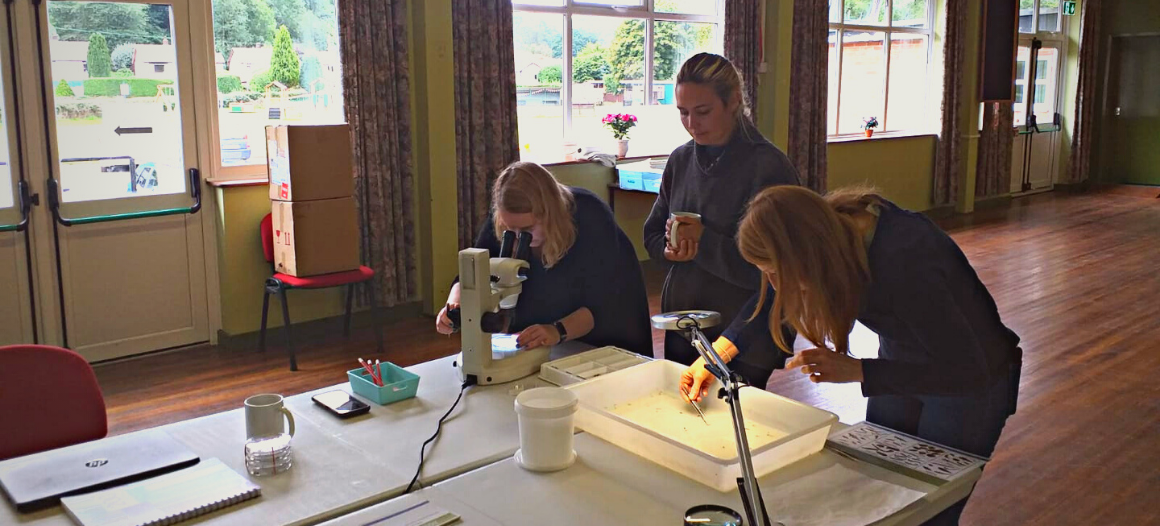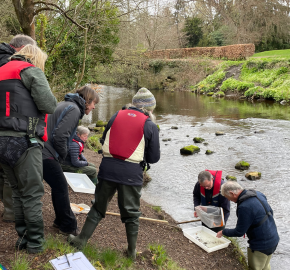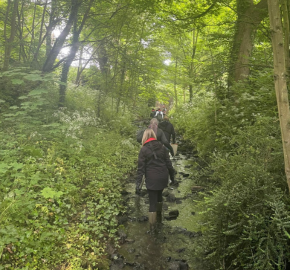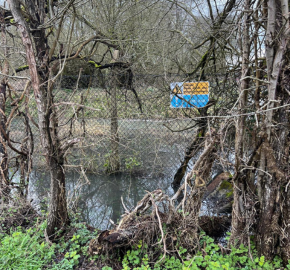SmartRivers question time

We catch up with Lauren Harley on why SmartRivers monitoring is so important and how it benefits local groups.
SmartRivers helps paint a picture of river health, why is this so vital in the fight to save freshwater?
Without fit for purpose monitoring we are blind. A healthcare professional wouldn’t put together a treatment plan without proper investigation and testing – improving rivers is no different. Until we know what pressures rivers are experiencing, it is extremely difficult to take (and fight for) appropriate action.
Budget cuts continue to reduce the coverage and frequency of statutory monitoring regimes nationwide. Because of this, SmartRivers is more important than ever to get the health and biodiversity information desperately needed to protect and restore freshwater ecosystems.
What are the top three benefits of SmartRivers to a local river group?
1. A campaigning voice
Providing a strong scientific foundation, the data is used by local communities as a driver for local activism. SmartRivers enables us to help local groups with targeted, evidence-based campaigning.
2. Connectivity and understanding of the natural world
SmartRivers gives local groups a better understanding of the current health of their rivers and the actions required to protect them. As a volunteer you get up close and personal with aquatic invertebrates, but you also learn important information about overall ecosystem functioning and water quality.
3. Safeguarding for the future
The raw species lists produced by SmartRivers are invaluable records. Every SmartRivers survey provides a scientifically robust’ benchmark’ of the invertebrate communities present. This means, decades down the line, there are high resolution records of what was in the river at that specific time, allowing accurate comparisons to be made.
Why is SmartRivers essential to wild fish conservation?
A question we are often asked is: ‘You’re a charity for wild fish – why are you running a project monitoring invertebrates?’
As the foundation of the food web, changes to invertebrate communities alter the natural balance of river systems. This has implications for wildlife, like fish, that rely on invertebrates as a food source.
Additionally, the invertebrate records from each site are used to identify the impact of a variety of water quality stressors through the generation of a water quality ‘scorecard’. This provides invaluable insight into the condition of the habitats wild fish populations depend on.
How can I get involved in SmartRivers monitoring?
Unfortunately as much as we would like to enrol individuals, all hubs need a host organisation and we can only run courses with groups of around 10 volunteers. If you are aware of any local conservation groups, or can make contact with your local Rivers Trust/Wildlife Trust about setting up a hub, we can make something happen.
What is your favourite stretch of river and why?
There are too many to possibly choose! Although I do have a soft spot for the River Frome as this is where I first experienced the invertebrate sampling technique we use in SmartRivers!




